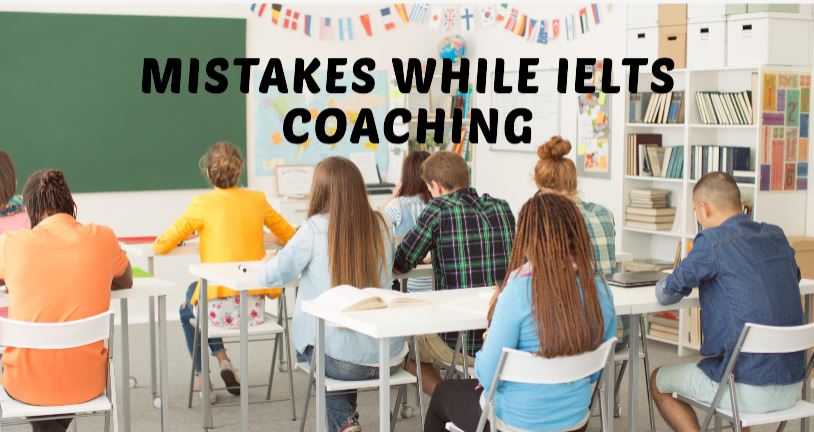The IELTS exam serves as a crucial gateway for individuals aspiring to study abroad, and navigating this linguistic maze requires strategic preparation. In this comprehensive guide, we will explore the top 10 mistakes candidates often make during the IELTS exam and provide insights on how to avoid them. Whether you are planning to appear for the IELTS or PTE exam, aiming to study abroad, or seeking IELTS coaching in Delhi, this guide is designed to steer you clear of common pitfalls.
Mistake 1: Underestimating the Importance of Time Management
Practice with Timed Mock Tests
One prevalent mistake is underestimating the significance of time management. The IELTS exam has strict time constraints, and candidates often struggle to complete all sections within the allocated time. Practice with timed mock tests to simulate exam conditions and improve your ability to manage time effectively.
Mistake 2: Neglecting Reading Comprehension Skills
Diversify Your Reading Practices
Many candidates underestimate the complexity of reading comprehension tasks. Neglecting to hone these skills can lead to errors and lower scores. Diversify your reading practices by engaging with a variety of texts, including academic articles, newspapers, and literature, to enhance your comprehension abilities.
Mistake 3: Overlooking Writing Task Requirements
Understand Task-specific Criteria
Misinterpreting or overlooking the specific requirements of writing tasks is a common error. Each writing task in the IELTS exam has unique criteria, and understanding them is essential. Review sample responses, seek feedback, and practice writing essays and reports to align with task-specific expectations.
Mistake 4: Ignoring Pronunciation and Intonation in Speaking
Engage in Pronunciation Exercises
In the speaking module, pronunciation and intonation play a pivotal role. Ignoring these aspects can lead to misunderstandings and impact your score. Engage in pronunciation exercises, practice with native speakers if possible, and leverage online resources to refine your spoken English.
Mistake 5: Overemphasis on Vocabulary Over Usage
Focus on Contextual Vocabulary
While a rich vocabulary is crucial, overemphasizing memorization without understanding contextual usage is a mistake. The IELTS exam assesses how well you use vocabulary in specific contexts. Focus on learning words in context, and practice incorporating them into your speaking and writing tasks.
Mistake 6: Relying Solely on Model Answers
Analyze a Variety of Response Types
Many candidates rely solely on model answers for preparation, limiting their exposure to different response types. Analyze a variety of responses, both high and low-scoring, to understand the range of possible answers. This broadens your understanding and prepares you for diverse question formats.
Mistake 7: Lack of Grammar Review
Regularly Review Grammar Rules
A common error is overlooking the importance of grammar. Regularly review grammar rules and practice applying them in various contexts. This not only improves your writing and speaking skills but also ensures grammatical accuracy across all sections of the exam.
Mistake 8: Neglecting Listening Skills
Practice Active Listening Techniques
Neglecting listening skills can lead to errors in understanding spoken passages and answering questions accurately. Practice active listening techniques, such as note-taking and summarizing, to enhance your ability to comprehend spoken English in diverse contexts.
Mistake 9: Overlooking Task-specific Strategies
Develop Strategies for Each Task Type
Each IELTS task type requires specific strategies for success. Candidates often overlook the importance of task-specific techniques. Develop strategies for each task type in the reading, writing, listening, and speaking modules to maximize your efficiency and accuracy.
Mistake 10: Failing to Seek Professional Guidance
Enroll in IELTS Coaching in Delhi
Failing to seek professional guidance can be a critical mistake. Enrolling in IELTS coaching in Delhi provides structured preparation, personalized feedback, and insights from experienced instructors. Coaching sessions help you identify and rectify weaknesses, ensuring a well-rounded approach to the exam.




